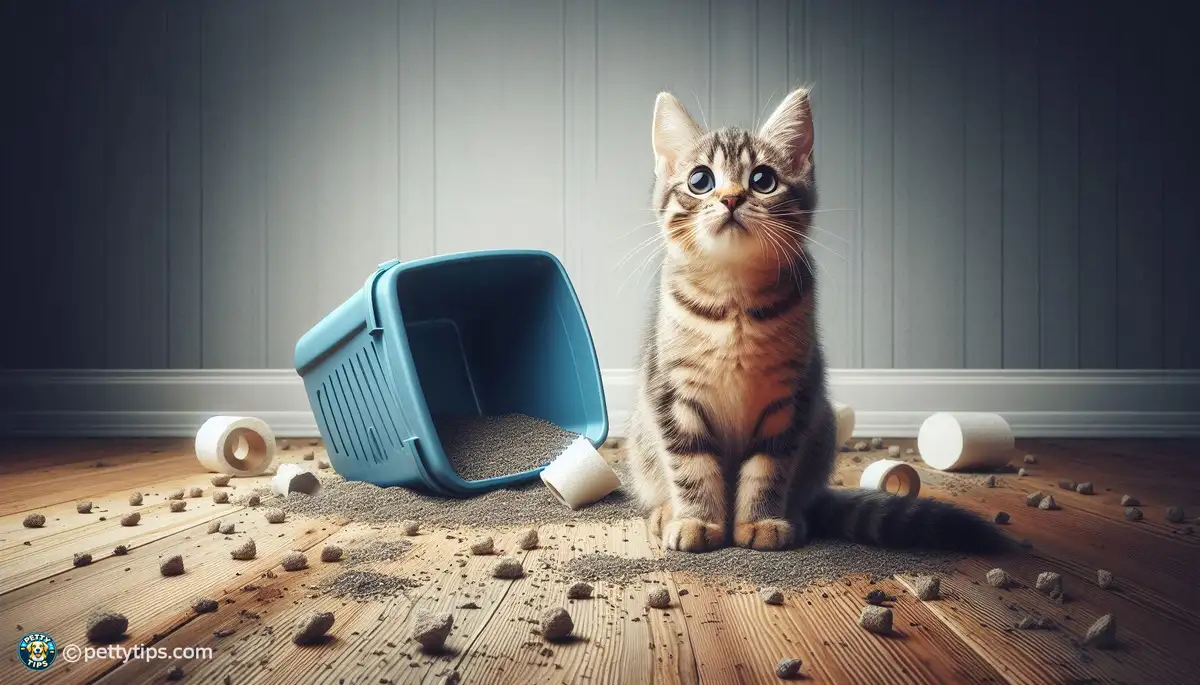
Teaching Cats Healthy Attention-Seeking Alternatives
Aurora Luckett - Oct 18, 2024 - 8 min read


litter boxes are more than just a convenience for cat owners; they serve as vital tools in understanding a cat’s health and behavior. Cats are known for their fastidious nature, and any deviation from their normal litter box habits can signal underlying issues. When a cat starts avoiding the litter box, it's often a red flag that something isn't quite right. As a pet expert, I've seen firsthand how litter box problems can be indicative of various physical and psychological concerns in cats.
From refusing to use the litter box altogether to urinating or defecating outside of it, there are several behaviors that cats may exhibit when experiencing litter box problems. These issues can manifest in cats of any age or breed and are not to be dismissed lightly. Understanding the root cause behind these behaviors is crucial for implementing effective solutions and ensuring the overall well-being of our feline friends. Let's delve deeper into one significant factor that often goes unnoticed: anxiety.
Anxiety is not exclusive to humans; cats can experience it too. However, unlike humans who can communicate their feelings verbally, cats express anxiety through their behavior. Common signs of anxiety in cats include excessive grooming, hiding, aggression, and, relevant to our discussion, litter box problems. It's essential for cat owners to be vigilant and recognize these signs early on to address the underlying issues promptly.
Anxiety in cats can stem from various stressors, both internal and external. Changes in the household environment, such as moving to a new home or introducing new pets, can disrupt a cat's sense of security and trigger anxiety. Similarly, loud noises, unfamiliar visitors, or even changes in routine can cause stress and contribute to litter box problems. Identifying these stress triggers is the first step in mitigating anxiety-related issues in cats.
When a cat experiences anxiety, it can affect their litter box behavior in several ways. Some cats may become overly cautious and avoid using the litter box altogether, while others may exhibit inappropriate elimination outside of the box. Additionally, anxiety can lead to changes in urination frequency or consistency, making it challenging for owners to address the problem effectively. Understanding how anxiety manifests in litter box behavior is crucial for developing targeted interventions.
Creating a conducive environment for cats is key to alleviating anxiety and promoting positive litter box habits. environmental enrichment techniques, such as providing ample hiding spots, vertical space for climbing, and interactive toys, can help reduce stress levels and keep cats mentally stimulated. Additionally, establishing a consistent routine and maintaining a clean litter box are essential for minimizing anxiety-related issues. By addressing the root cause of anxiety and implementing appropriate environmental modifications, cat owners can help their feline companions feel more secure and confident in their surroundings.
When dealing with litter box problems stemming from anxiety, it's crucial to rule out any underlying medical conditions that may be contributing to the issue. A thorough veterinary evaluation can help determine whether the problem is behavioral or medical in nature. Conditions such as urinary tract infections, bladder stones, or gastrointestinal issues can cause discomfort or pain, leading to changes in litter box behavior. Once medical issues are ruled out, cat owners can focus on addressing the behavioral aspect of the problem.
behavior modification techniques can be effective in managing anxiety-related litter box problems in cats. positive reinforcement, such as praising and rewarding cats for using the litter box appropriately, can help encourage desired behaviors. Additionally, providing cats with a safe space to retreat to when feeling anxious can help reduce stress levels and prevent litter box avoidance. Consistency is key when implementing behavior modification techniques, and patience is essential as cats may take time to adjust to new routines.
Making strategic changes to the cat's environment can help alleviate anxiety and promote positive litter box habits. This may include creating designated litter box areas in quiet, low-traffic areas of the home, as well as using litter substrates that are preferred by the cat. Additionally, providing multiple litter boxes in multi-cat households and ensuring they are kept clean and accessible can help reduce competition and minimize stress. By tailoring the environment to meet the cat's needs, owners can create a harmonious living space that supports their feline companion's mental and physical well-being.
Understanding the link between anxiety and litter box problems in cats is crucial for promoting their overall health and happiness. By recognizing the signs of anxiety and addressing stress triggers, cat owners can effectively manage litter box issues and provide their feline companions with a comfortable and secure environment. Through veterinary evaluation, behavior modification techniques, and environmental modifications, cat owners can help alleviate anxiety-related litter box problems and strengthen their bond with their beloved pets. Remember, patience and consistency are key when implementing these strategies, and seeking guidance from a veterinarian or animal behaviorist can provide valuable support along the way.